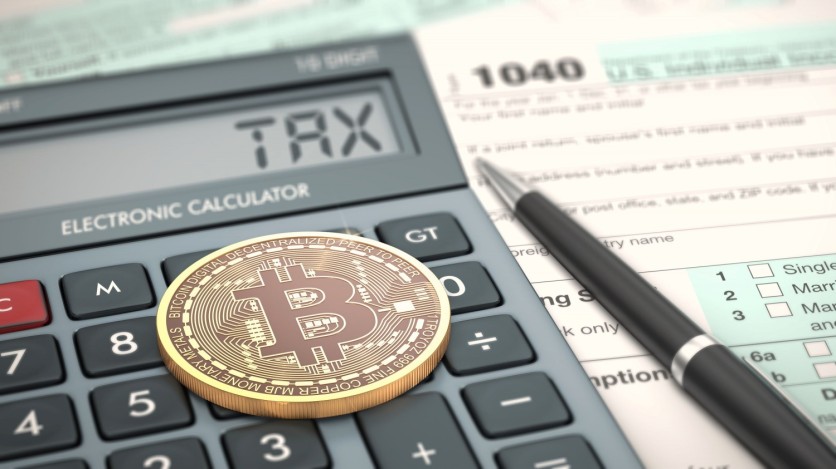
The revenue in the cryptocurrency segment is forecasted to grow at 14.4% annually between 2023 and 2027. This rapid growth rate suggests that more people are embracing this digital currency.
However, despite this growing popularity, crypto taxation is still a gray area in various regions. Many countries are still developing their financial policies and regulations to accommodate this new trend. Keeping yourself in the loop is essential to avoid unnecessary legal trouble.
This article will discuss what you need to know about crypto taxation in major countries. Jump right in!
Cryptocurrency taxation in Australia
In Australia, the Australian Taxation Office (ATO) has released guidance on the taxation of cryptocurrency. The ATO considers cryptocurrency as an asset, which means that it is subject to capital gains tax (CGT) when it is sold or disposed of.
What does this mean? Take Bitcoin (BTC), the most popular cryptocurrency, for example. If the BTC price is higher when you sell than when you bought it, you'll need to pay tax on the capital gain.
The ATO requires taxpayers to keep records of all cryptocurrency transactions, including the date, amount, and purpose of the transaction. These records should also contain information about the value of the cryptocurrency at the time of the transaction.
It's noteworthy that the figures must be in Australian dollars at the time of transaction when calculating your capital gains or losses. Do you want to learn more about crypto taxation in Australia? Watch the following video:
Another thing to keep in mind is that ATO sometimes offers a 50% CGT discount. However, you must hold cryptocurrency as an investment for at least 12 months to be eligible. If you qualify, you'll only pay tax on 50% of your profits.
But what if you receive cryptocurrency as payment? ATO treats this the same way as any other forms of payment like cash and cheques. Its value at the time of the transaction will be used when assessing your taxable income.
The same applies if you're running a cryptocurrency mining business. What you gain from the business will be the assessable income for tax purposes. You may also be able to claim deductions for expenses related to your mining activities, such as equipment and electricity costs.
Cryptocurrency taxation in the United States
In the United States, the Internal Revenue Service (IRS) considers cryptocurrency as property and not currency. This means that cryptocurrency transactions are subject to capital gains tax, just like stocks and bonds.
The IRS requires taxpayers to report any gains or losses from cryptocurrency transactions on their tax returns. The tax rate for long-term capital gains is typically lower than that for short-term capital gains.
If a taxpayer receives cryptocurrency as payment for goods or services, the value of the cryptocurrency received is considered taxable income. The value is determined by the fair market value of the cryptocurrency at the time of receipt. This income is subject to ordinary income tax rates.
Cryptocurrency taxation in the European Union

In the European Union (EU), taxation policies vary by country. Some treat cryptocurrency as currency, while others consider it an asset. Therefore, if you're from this region, it's essential to read widely about the tax laws in your country.
Generally, gains from the sale of cryptocurrency are taxable in the EU. In some cases, losses may be deductible. But then again, it all depends on your government's laws. Remember, some countries have also introduced exemptions for certain types of cryptocurrency transactions.
For instance, in the United Kingdom (UK), cryptocurrency is subject to capital gains tax. However, there is a tax-free allowance of £12,300 for individuals for the tax year 2022-23. If gains exceed this amount, they are subject to capital gains tax rates. If cryptocurrency is received as payment for goods or services, it is subject to income tax.
Conclusion
Cryptocurrency tax regulations across the globe are still evolving. Although the requirements may vary by country, the concepts are pretty much the same across the board. For instance, Australia and the United States both consider cryptocurrency as an asset rather than a currency. But if you receive crypto payments, they'll be taxed as other forms, such as cash.
As a regular user of these digital coins, it's essential to understand the laws within your country of residence. But regardless of your location, you must keep accurate records of all crypto-related transactions. If you're not sure where to start, you should seek advice from a tax professional to ensure compliance with local tax laws. As cryptocurrency gains more mainstream acceptance, we can expect governments to introduce more comprehensive tax regulations.
ⓒ 2026 TECHTIMES.com All rights reserved. Do not reproduce without permission.




